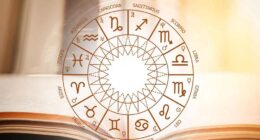Table of Contents
- The Roots of Vedic Astrology and Its Relevance Today
- Digital Age Stressors: The New Mental Health Crisis
- How Vedic Astrology Assesses Mental Wellness
- Integrating Astrology with Modern Wellness Practices
- Astro-Hygiene in the Digital Space
- Criticisms and Considerations
- Conclusion: A Cosmic Compass for Modern Minds
Aarav was a 32-year-old software engineer working at a leading multinational tech firm in Bengaluru. Despite his career success, he struggled silently with severe anxiety, digital fatigue, and chronic insomnia. Therapy didn’t help much. Meditation apps gave momentary relief. At his wits’ end, his grandmother urged him to consult a Vedic astrologer. Sceptical but desperate, Aarav agreed. The astrologer, after analysing Aarav’s natal chart, pointed to a weak Moon and an afflicted Mercury—the planetary indicators of mental equilibrium and nervous health. He prescribed mantras, gemstone therapy, and a strict routine aligned with planetary hours. Six months later, Aarav felt calmer, slept better, and reported fewer panic attacks. It wasn’t magic. It was rhythm—his inner self syncing with cosmic time.
In the labyrinth of our modern, digitised existence, where screens flicker like restless sentinels and virtual connections often supplant the warmth of human presence, we have observed a subtle, though undeniable, shift in the mental terrain of many. Once occasional, anxiety now seems ambient; fatigue is no longer merely physical but digital, spectral. There is a peculiar kind of loneliness, too, not of isolation, but of disconnection amidst constant contact.
We can observe in many individuals from different parts of life —engineers, musicians, teachers—who have turned to the ancient, interpretive art of Vedic astrology. Not with naïve credulity, but with a kind of intuitive seriousness, as if their psyches recognised a language their conscious minds had long forgotten.
This practice—this symbiosis of planetary rhythm and inner life—does not promise cure, but coherence. It speaks of alignment: of mind with cosmos, of emotion with elemental movement, of spirit with story. In an age obsessed with data, here is something richer: a map not of the world, but of the self as it orbits within it.
The Roots of Vedic Astrology and Its Relevance Today
Vedic astrology, or Jyotish Shastra, dates back thousands of years and is deeply intertwined with Indian spiritual philosophy. It operates on the belief that the positions of celestial bodies at the time of birth influence an individual’s personality, mental tendencies, and life experiences.
Why it’s relevant today:
- Offers personalised insights into mental tendencies and emotional imbalances.
- Helps identify dasha (planetary periods) that influence mental highs and lows.
- Encourages preventative action before emotional crises unfold.
In an era where algorithm-driven wellness apps fail to address emotional depth, Vedic astrology and mental wellness serve as a personalised blueprint for emotional intelligence.
Digital Age Stressors: The New Mental Health Crisis
The digital age has introduced unique stressors never experienced by previous generations. Constant notifications, doomscrolling, and algorithmic overload disrupt our natural emotional rhythms.
Major stressors include:
- Information overload leading to attention fatigue.
- Social media comparison, triggering low self-worth.
- Remote living, increasing isolation and depression.
- Digital surveillance, adding anxiety over privacy.
These evolving challenges make conventional wellness solutions feel outdated. This is where Vedic astrology and mental wellness converge to offer proactive, spiritually grounded coping mechanisms.
How Vedic Astrology Assesses Mental Wellness
Unlike modern psychology, which categorises mental health into diagnostic boxes, Vedic astrology takes a more layered approach. It examines the birth chart (natal chart or Janma Kundali) to decode emotional proclivities.
Key chart factors:
- Moon (Chandra): Governs the mind and emotions. A weak or afflicted Moon can indicate anxiety or mood swings.
- Mercury (Budh): Linked to intellect and communication. Retrograde or combust Mercury may lead to overthinking or confusion.
- 12th House: Associated with the subconscious and isolation. Malefic influence here may suggest depression or withdrawal.
- Rahu and Ketu: Shadow planets that influence obsession, detachment, and emotional extremes.
Through these astrological markers, Vedic astrology and mental wellness help pinpoint underlying emotional triggers before they manifest into full-blown disorders.
Integrating Astrology with Modern Wellness Practices
Rather than replacing psychology or medicine, Vedic astrology and mental wellness can complement existing mental health solutions. The integration enhances both introspection and action.
Combined approaches:
- Astrology + Therapy: Helps therapists understand a patient’s temperament and emotional cycle.
- Astrology + Yoga/Meditation: Uses planetary influence to time meditation practices for higher efficacy.
- Astrology + Journaling: Promotes daily reflection aligned with lunar phases.
This hybrid model of self-care respects both spiritual traditions and modern science, offering a more nuanced path to healing.
Astro-Hygiene in the Digital Space
Just as we practice digital hygiene by reducing screen time, astro-hygiene is about aligning digital activities with cosmic rhythms. It advocates for a balanced digital life by syncing routines with celestial movements.
Astro-hygiene tips:
- Avoid important decisions during Mercury retrograde.
- Schedule detoxes or mental breaks during New Moon or Amavasya.
- Use Full Moon energies for manifestation and gratitude journaling.
- Consult your dasha periods before starting major projects or therapy.
Incorporating these practices fosters a more conscious, less reactive digital existence—a critical need in the current mental wellness landscape.
Criticisms and Considerations
While many swear by astrological guidance, sceptics caution against over-reliance on fate or celestial determinism. It’s important to use Vedic astrology as a tool, not a crutch.
Keep in mind:
- Always verify the credentials of astrologers.
- Combine astrology with rational decision-making.
- Avoid fatalism; astrology is about awareness, not inevitability.
When used responsibly, Vedic astrology and mental wellness can illuminate paths otherwise hidden in modern therapeutic frameworks.
Conclusion: A Cosmic Compass for Modern Minds
In the digital age, where mental wellness is constantly under siege, Vedic astrology offers a refreshing blend of ancient insight and intuitive guidance. By decoding our emotional blueprint through the stars, it allows us to navigate modern life with greater emotional clarity and purpose. Rather than being a relic of the past, Vedic astrology and mental wellness have become essential allies in cultivating inner peace, resilience, and conscious living. As we continue to face digital stress and emotional overload, this timeless wisdom may just be the cosmic compass we need.









